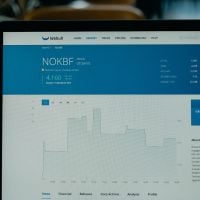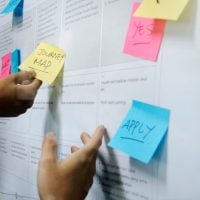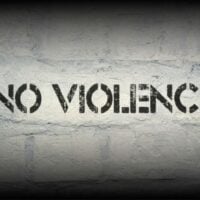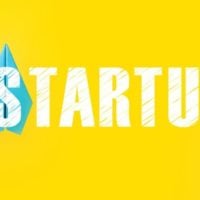[March 2023]
Join the 5th World Bank and Financial Times Youth Blog Competition
Deadline: 1-Apr-23
The World Bank and Financial Times are seeking applications for the 2023 Youth Blog Competition.
Topic
Prizes
The winning entry will be published in the Financial Times (at its sole discretion) and the World Bank blog. The World Bank will also find additional, virtual ways to honor the winner during 2023.
Terms and Conditions
- Entries should be original content and cannot have been previously published or lifted from other sources. By submitting an entry, entrants grant to The World Bank and The Financial Times Limited (“FT”) a worldwide, perpetual, non-exclusive, royalty-free license to copy, edit, publish and use the entry, in whole or in part, and in any way, including for publishing on the World Bank’s blog platform and, at the FT’s sole discretion, on ft.com, without compensation to the entrant. Rights to edit copy where the publishers deem necessary is reserved although entrants will be fully credited.
- Entries should be the work of the submitter and cannot be collaborative or written by a proxy.
- Participants must be enrolled in high school or a version of secondary education and should be between the ages of 16-19 years at the time of submission.
- Entries can be submitted in English, French, Spanish and Arabic.
- The winning entries will be published in English.
- There is no fee payable to enter the competition.
- The World Bank and FT are not responsible for:
- any incorrect or inaccurate information used in connection with the competition; or
- failures or errors which may occur in the administration of the competition. To the fullest extent permitted by law, The World Bank and FT exclude liability and entrants agree to release and hold harmless The World Bank and FT for any damage, loss, liability or injury to person or property or for any claim arising as a result of your entry into the competition.
- By submitting an entry to this contest, every Contestant agrees and accepts the terms set forth here. If you do not agree with these terms, do not submit an entry.
- To the extent permitted by law, the rights to litigate, to seek injunctive relief or to any other recourse to judicial procedure in case of disputes or claims resulting from or in connection with this Contest are hereby excluded, and Contestant expressly waives any and all such rights.
- Preservation of Immunities. Nothing herein shall constitute or be considered to be a limitation upon or a waiver of the privileges and immunities of the World Bank which are specifically reserved.
- The promoter is the World Bank of 1818 H Street NW, Washington DC 20433.
Judging
Entries will be judged by a high-level panel comprised of senior officials at the World Bank, the Financial Times, and select partners. The full names of the judges can be made available on request. Judging will take place during April 2023 and winners will be contacted and announced around May 2023 on the World Bank blog and Financial Times website, unless a winner objects to publication of their name at the time of entry. Entries will be judged against originality, creativity, writing quality, and solutions presented. The judging panel’s decision is final, and no correspondence will be entered into. Winners will be contacted via the contact information provided with their submission.
Submissions Criteria
Submissions should include:
- A strong blog or essay, that is no longer than 500 words.
- Your name, age, school, email, and country you live in.
- Photos, videos, visualizations that help support your story, are optional.
For more information, visit World Bank.
Call for Grant Proposals: Strengthening the Voice of Vulnerable Groups
Deadline: 31-Mar-23
The Caribbean Policy Development Centre (CPDC), with support from the European Union (EU) is implementing a project entitled “Strengthening Civil Society’s Capacity to Alleviate the Impact of COVID-19 on Vulnerable Communities in Barbados and the Eastern Caribbean”.
In light of this, CPDC is issuing a call for grant proposals to strengthen the enabling environment for Caribbean NGOs working with the most vulnerable sectors impacted by the COVID-19 pandemic. This will be facilitated through improving access to financial resources, technical training and enhancing the voice of marginalized persons.
Purpose
- The project covers seven CARICOM countries; these countries include Antigua and Barbuda, Barbados, Dominica, Grenada, Saint Lucia, Saint Kitts and Nevis and Saint Vincent and Grenadines. The project will build the Non-Governmental Sector’s capacity in the Caribbean by implementing several specific actions. These actions focus on strengthening NGOs’ capacity to provide key development solutions to vulnerable groups affected by the COVID-19 pandemic. These actions include activities that promote NGO’s institutional and organisational capabilities through several core thematic areas: – addressing the legislative environment through advocacy programming, promoting greater transparency within the sector, project management skills development, enhanced regional policy dialogue and improving access to small grants to name a few.
- The project comes against a background of “the multidimensional impact of the COVID-19 pandemic on marginalised social sectors, requiring development support, critical CSO interventions to achieve sustainable development. However, the meaningful participation of CARIFORUM civil society has been stymied by two main factors; the lack of capacity to effectively engage in the COVID-19 policy process and the lack of an institutionalised mechanism to facilitate dialogue between civil society and CARIFORUM governments. This Action is therefore intended to implement activities to address these challenges.
Objectives
- Major Objective
- To improve service delivery and strengthening the voice of the marginalised social sectors and groups impacted by the COVID-19 pandemic within Caribbean society by providing small scale funding for actions that enable NGOs to respond to the needs vulnerable groups adequately.
- Specific Objectives
- To support NGOs to provide essential developmental services to their beneficiaries which address development issues that directly impact on their lives and livelihood;
- To foster positive social change in the lives of marginalised social sectors/groups through the formulation and implementation of educational and advocacy strategies;
- To improve organisational capacity of NGOs to deliver project services and advocacy solutions to vulnerable groups.
Funding Information
- The overall indicative amount made available under this Call is USD 242 304.00. The Contracting Authority reserves the right not to award all available funds. Similarly, this amount could be increased should more funds become available. A minimum co-financing requirement of USD 1200.00 will be required from all grantees.
- Size of Grants Any grant requested under this Call for Proposals must fall between the following minimum and maximum amounts (not inclusive of co-financing or in-kind:
- Minimum amount: USD 12,115
- Maximum amount: USD 21,000
- Duration: The period to execute the project may not be lower than six months nor exceed nine (9) months from signing the Grant Contract. No extensions will be granted to beneficiaries. All proposed project activities must be completed within the nine (9) month period.
Expected Outcomes
- Improved access to quality services and advocacy outreach by vulnerable groups to respond to the COVID-19 pandemic;
- Enhanced voice of vulnerable groups in policy spaces on COVID-19 related issues;
- Increased NGO capacity to deliver services and advocate in response to the needs of vulnerable groups.
Eligible Activities
- Targeting populations with limited resources with affordable, innovative strategies including the provision of much-needed social and economic development actions, and health-care services;
- Research and knowledge dissemination which includes formulation and production of advocacy materials that assist in communicating to beneficiaries better or communicating sector policy positions; and
- Limited institutional capacity building actions (ICTs, staff training, M&E systems formulation etc.)
Ineligible Activities
The following types of actions are ineligible:
- Actions concerned only or mainly with individual sponsorships for participation in workshops, seminars, conferences and congresses unless proven to be an integral part of the project outcome;
- Actions concerned only or mainly with individual scholarships for studies or training courses;
- Actions which consist exclusively or primarily in capital expenditure, e.g. land, buildings, equipment and vehicles, except in special circumstances;
- Actions which discriminate against individuals or groups of people on the grounds of their gender, sexual orientation, religious belief or lack of them, or their ethnic origin;
- Actions concerned only with one-off conference with no intended follow up. Conferences can only be funded if they form part of a wider range of activities to be implemented in the project’s lifetime. For these purposes, preparatory activities for a conference and the publication of the proceeding of the conference do not, in themselves, constitute such ‘wider activities’;
- Actions supporting individual political parties; and
- Actions involving proselytism.
Location: Actions must take place in one or more of the following countries: these countries include Antigua and Barbuda, Barbados, Dominica, Grenada, Saint Lucia, Saint Kitts and Nevis, Saint Vincent and Grenadines.
Eligibility Criteria
- To be eligible for a grant, the applicant must:
- Be non-profit-making and
- Be a legally registered organisation and
- Be established in Caribbean States (Antigua and Barbuda, Barbados, Dominica, Grenada, Saint Lucia, Saint Kitts and Nevis, Saint Vincent and Grenadines) and
- Be directly responsible for the preparation and management of the project and
- Have an operational presence including a current and registered bank account with two signatories, and
- Have the demonstrated human resources to ensure the delivery of the project and
- Have a proven track record of at least three years working with the respective vulnerable group
- International organisations are not eligible.
For more information, visit CPDC.
Open Call to promote Feminist Action for Socio-economic Recovery and Climate Change-resilient Livelihoods (Cambodia)
Deadline: 4-Apr-23
UN Women now invites sealed proposals from qualified proponents for Promoting feminist action for socio-economic recovery from Covid-19 pandemic and climate change-resilient livelihoods.
The project will provide various technical support and transformative leadership development opportunities to open-up employment opportunities and expand women’s income generation options, leading to their economic autonomy and leadership. The capacity development activities should further strengthen their capability to adapt to climate change and improve their economic condition after the setbacks caused by disasters and/or COVID-19. Specifically, the project should address key components as bellow:
- Empowering most vulnerable women groups including, but limited to, women affected by HIV, migrant workers or former migrant workers especially those living in climate vulnerable, and disaster affected areas to enable them to exercise their rights and to express their voice and demand accountability from duty bearers and service providers to develop a gender-responsive plan and budget that responds to the gender-specific needs and reduce vulnerabilities. There should be an emphasis on capacity development, creating space for dialogue between right holders (especially women, girls and people identified with other genders) and duty bearers (local authorities).
- Creating space and opportunity for financial recovery. This includes providing technical capacity development which allows vulnerable women group to have better employment viability, economic autonomy and reach their leadership potential admits to post Covid-19 situation. The technical capacity development should cover but limited to, financial literacy and management and job search skill.
- Promoting women vulnerable group’s climate change adaptation and resilient livelihood activities and capacity to lead in the matter. This includes strengthening of resilience, and livelihood capacity while supporting women to take lead and engage to decision making in climate change and disaster management activities.
- Creating enabling environment to support vulnerable women group’s livelihood through community gender transformative actions including holding dialogue with men, the community and local authorities to address gender and power dynamics at household level to enable men to take responsibility in sharing domestic, care work, to prevent violence against women and create women economic autonomy.
Priorities
The UN Women Cambodia Country Office (CCO) Strategic Note (SN) 2019-2023 focuses on three key priorities to advance gender equality and women’s empowerment (GEWE).
- The first priority is to strengthen government capacity and accountability to integrate international norms and commitments (CEDAW, SDGs, Beijing PfA, Sendai) into national legislative and regulatory frameworks, including supporting dialogue and CSO engagement in accountability for GEWE commitments.
- The second area of focus is Ending Violence Against Women where CCO’s focus includes creating an enabling environment to prevent, respond to and prosecute all forms of GBV as well as ensuring that marginalised women who experience violence, including women migrant workers, access services and protections.
- Thirdly, CCO works to enhance gender responsiveness in climate change action and Disaster Risk Reduction (DRR). A focus on empowerment, women’s leadership, challenging negative gender norms and leaving no one behind runs through the programme.
Objective
The overall objective of the project is to promote gender-responsive socio-economic recovery responding to Covid-19 impact and implement gender responsive and inclusive climate change adaptation and resilient livelihood through women leadership.
The specific project’s objectives are as below:
- To increase technical and leadership capacity among most vulnerable women in the target communities for viable employment opportunities.
- To strengthen feminist climate change action particularly promoting climate resilient and adaptive livelihood among vulnerable women groups.
- To create enabling environment for positive gender transformation in the community through men and community engagement including local authorities.
Funding Information
- The budget range for this proposal should be [45,000-50,000 USD].
- The tentative project duration is 18 months which will start from 01 May 2023- 30 September 2024.
Eligibility Criteria
- At least 05 years of experience in procuring and implementation of similar activities.
- Reputed nationally registered organization with representative office in Cambodia and can conduct outreach in mentioned areas of intervention.
- Proven track record of working in women empowerment and gender equality.
- Proven track record of working in the target provinces is an advantage.
- Proven working with most vulnerable women group including women affected by HIV/AIDs, women migrant workers and former women migrant workers is preferred.
- Proven have experience working in climate change resilience-livelihood building is an advantage
- Previous working experience with UN agencies or other international development agencies is an advantage.
- Ability to communicate in local language.
- A verifiable reputation of integrity and competence.
For more information, visit UN Women.
Indonesia | Funding available through Public Diplomacy Small Grants Program
Deadline: 30-Jun-23
The U.S. Mission to Indonesia is pleased to announce that funding is available through its Public Diplomacy Small Grants Program.
Purpose of Small Grants
- The U.S. Embassy’s Public Affairs Section (PAS) in Jakarta invites proposals for projects that further and support the strategic partnership between Indonesia and the U.S. through educational, cultural, informational, and media programming that highlights shared values and promotes bilateral cooperation. All programs must include an American cultural or media-related element, or a connection with American expert/s, organization/s, or institution/s in a specific field that will promote increased understanding of U.S. policy and perspectives.
- Examples of small grants projects include but are not limited to:
- Educational seminars, and expert speaker programs;
- Professional and academic exchanges and projects;
- Professional development workshops and training;
- Artistic and cultural workshops, joint performances, and exhibitions; and
- Cultural heritage conservation and preservation projects.
Themes
- Strategic Partnership: activities that promote U.S.- Indonesia strategic partnership, people to people ties, and shared values, including democratic governance, freedom of speech, tolerance and diversity, the rule of law, and human rights.
- Security and Defense: activities that promote awareness of security issues and cooperation in the Indo-Pacific region; promote respect for international law including maritime law in the South China Sea; combat transnational, regional, and global challenges, including cybersecurity, terrorism, and violent extremism
- Prosperity, Trade, and Investment: activities that promote economic cooperation or business development between the U.S. and Indonesia; encourage an understanding of U.S. trade policies, exports, and investment opportunities, expand economic opportunities for women, youth, and underserved populations; and/or promote entrepreneurship and innovation in business.
- Technology and Innovation: activities that support technical innovation and cooperation in such areas as public health and medical fields, agricultural technology, cybersecurity, and space exploration; and/or programs to expand STEAM (Science, Technology, engineering, Art, and Math) education for youth.
- Education and Human Capacity: activities that promote educational partnerships and cooperation between U.S. and Indonesian education institutions (highschool), leadership and soft skill development, human capital development, and educational, exchange, and training opportunities for U.S. and Indonesian students and teachers.
- Post-Pandemic Recovery: activities that help the support Indonesia, regional or global economic, health, and social recovery from the impacts of the COVID-19 pandemic.
- Environmental Issues and Climate Crisis: activities that increase awareness of regional and global environmental challenges, climate change, and sustainable development; and/or promote innovation in support of combating climate change or supporting alternative energy sources
- Combating Disinformation: activities that encourage identification of and resistance to dis/misinformation or hoaxes, knowledge of reliable sources for accurate factual information, and associated critical thinking skills.
- Diversity and Inclusivity: activities that promote the value of human diversity and inclusiveness of Indonesians in business, academia, government, and civil society. Areas of diversity include race, ethnicity, religion, gender, sexual orientation, disability, or other status.
Funding Information
- Award Amount: $30,000-$100,000.
- Period of Performance: Up to 12 months.
Participants and Audiences
- PAS is only able to consider grants that will take place in Indonesia or online (ie, virtual programming) or a combination of in Indonesia and online (hybrid). The program should be primarily for Indonesians, though a wider array of audiences/participants may be considered. Preference is for programs that offer meaningful and repeat contact with influential Indonesians or Indonesians likely to develop into leaders in business, government, academic or civil society. Programs should promote U.S.-Indonesia relations, and may include Americans. Programs may include a regional focus, looking at Indonesia in the context of ASEAN or the Indo-Pacific; and such regional programs may include participation from relevant countries.
Eligibility Criteria
- Embassy Jakarta welcomes applications from:
- U.S.-based and Indonesia-based non-profit organizations/nongovernment organizations (NGOs);
- U.S.-based and Indonesia-based public, non-profit, private, or state institutions of higher education; and
- Public International Organizations / Public Entity
- Applications from organizations that include alumni of U.S. Government exchange programs are highly encouraged.
- For-profit or commercial entities are not eligible to apply. Individual applicants are not eligible to apply.
For more information, visit Funding Opportunity for Public Affairs.
Second Call: EL*C Emergency Grants for Lesbian Groups
Deadline: Ongoing Opportunity
EuroCentralAsian Lesbian* Community is pleased to announce the 2nd call for EL*C Emergency Grants for Lesbian Groups that are in urgent need of financial support due to the Covid-19 crisis.
- Direct support and services to the lesbian community (such as food, shelter, psychosocial support, etc.);
- Advocacy activities (such as advocating for Covid-19 response measures that are inclusive of lesbian needs and interests);
- Communication and campaigning activities (such as social media campaigns, press clipping, online tools, etc);
- Operating costs (such as office costs, rent, utilities, etc)
- Grants can range from 500 EUR up to 3000 EUR.
- EL*C is constantly in touch with the lesbian community, lesbian organizations from Europe and Central Asia.
For more information, visit EuroCentralAsian Lesbian* Community.
ICNL Call for Grant Proposals: Up to $45,000 USD in Funding
Deadline: Ongoing Opportunity
The International Center for Not-for-Profit Law (ICNL) is pleased to invite proposals for grants as part of its ongoing project to safeguard civic freedoms and address democratic backsliding that resulted from the COVID-19 pandemic.
In this context, the International Center for Not-for-Profit Law (ICNL) seeks to support civil society organizations (CSOs) in the Indo-Pacific in undertaking forward-looking projects focused on:
- strategies for addressing COVID-19 authoritarian policies, including reviewing and repealing emergency measures;
- activities to promote civic freedoms-oriented best practices around emergency, disaster response, and pandemic policies; and
- efforts to highlight the innovative work of civil society in advocating against COVID-19 related encroachments on fundamental freedoms, as well as civil society’s critical role in COVID-19 response.
Objectives
In support of these objectives, applicants may select from a broad range of activities designed to achieve the grant’s objective, including, but not limited to:
- Identifying points of leverage and specific strategies to repeal emergency and rightsimpacting COVID-19 measures, and planning concrete activities to achieve these objectives;
- Researching and analyzing COVID-19 related technology, such as contact tracing apps and surveillance tools, and preparing advocacy activities to roll back the use of technologies that violate privacy and other freedoms, while promoting rightsrespecting alternatives for crisis management;
- Developing toolkits, publicity materials, multimedia, or digital campaigns to highlight and promote the work of civil society in resisting authoritarian COVID-19 governance while continuing to provide critical services;
- Conducting research, fieldwork, or case studies to compare best and worst-case scenarios and practices around pandemic governance response, with recommendations for how to better address crises while respecting civic freedoms;
- Organizing national and/or regional convenings to disseminate successful civil society advocacy strategies to resist closing civic space stemming from COVID-19 approaches over the past two years;
- Identifying regional best practices for ensuring avenues for participation in public affairs during COVID-19, and developing recommendations for the institutionalization and wider adoption of such practices;
- Organizing national and/or regional dialogues with governments to advocate for best practices and reforms governments can undertake to create more enabling civil society environments.
Topics
In five pages or less, please describe your proposal. The proposal should address the following topics:
- Identify a clear opportunity for CSOs or civic space in the COVID-19 era and explain how the proposed initiative will take advantage of this opportunity.
- Provide an overview of the proposed initiative and explain how it will assist other CSOs in overcoming, easing, or navigating COVID-19-related civic space challenges, including specific activities and anticipated outcomes.
- Describe applicant’s experience implementing similar activities proposed in this call.
- Identify CSOs, government bodies, and other stakeholders that will be engaged in the activities outlined in the application.
- Provide a proposed activity plan with specific goals and a timeline, recognizing that grant activities must be completed within a six-month period.
Funding Information
Grants of up to $45,000 USD are available for up to six-month long projects.
Eligibility Criteria
Open to any non-profit organization based in the Indo-Pacific region. Organizations must have already applied for and received a UEI (unique entity ID) number in order to be eligible for this grant.
Selection Criteria
Applications will be evaluated based on the following factors:
- Compliance with eligibility requirements and application procedures (including active UEI).
- Demonstrated commitment of the applicant to improving civic space.
- Quality of proposed project, including the project’s innovations, the proposed methodology/design, and feasibility of the project (e.g., activities are targeted to achieve stated results, and anticipated results are realistic and attainable).
- Likelihood that the proposed project will enhance civic space.
- Proposed budget and value for money.
- Inclusion of reasonable indicators to measure project success.
For more information, visit Call for Proposals.
Call for Proposals: Best Practice Pandemic Governance and Civic Society Collaboration
Deadline: Ongoing Opportunity
The International Center for Not-for-Profit Law (ICNL) seeks individuals or organizations to conduct research assessing examples of pandemic governance best practices with respect to civic freedoms and civil society collaboration.
Studies may focus on individual countries, such as New Zealand or South Korea, or may adopt a case study approach and examine multiple countries and examples throughout Asia. Priority will be given to individual or organizational consultants located in the region, and/or with significant civil society partner networks.
Scope of Work
- In order to promote best practices around pandemic governance and further explore how governments can protect public health while safeguarding human rights and civic freedoms, ICNL aims to commission research reports examining in-depth practices adopted by best practice jurisdictions including (but not limited to) New Zealand and South Korea, that facilitated public participation and protected civic freedoms during COVID-19. Example practices would include South Korea’s facilitation of online and remote voting during its elections, and New Zealand’s creation of an oversight committee to provide independent scrutiny of government measures.
- As part of this proposed research, the individual or organizational consultant may apply to complete one or more country studies (with priority given to in-country researchers) covering the following:
- In-depth research on enabling government policies related to COVID-19 that had a positive impact on civic space, or generally complied with international standards on free association, assembly, expression, or public participation.
- Examples of civil society – government cooperation on pandemic and humanitarian policies.
- The use of technology and digital tools in COVID-19 management, and examination of their impact on civic space.
- Assessment of any policies that raised human rights concerns, or failed to protect civic space.
- Overall assessment of the country response, analysis based on international standards around human rights and emergency measures, and recommendations based on the findings of the study, including good practices that could be replicated in other countries, and strategies for promoting rights-respecting approaches to pandemic governance.
Funding Information
The budget ceiling for the consultancy is $25,000. More than one consultancy may be awarded depending on proposed scope of work/country coverage.
Selection Criteria
Applications will be evaluated based on the following factors:
- Compliance with eligibility requirements and application procedures;
- Quality of proposal, including the proposed methodology/design and feasibility of the project (e.g., activities are targeted to achieve stated results, and anticipated results are realistic and attainable);
- Depth of experience with the subject matter of this research consultancy and experience researching and writing similar reports;
- Commitment to producing high quality reports in a timely manner; and
- Proposed budget and value for money.
For more information, visit Call for Proposals.









































